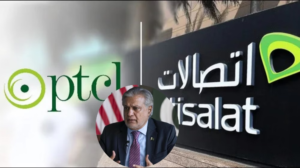RTA Dubai to Launch 72 Major Infrastructure and Transport Projects by 2027
Dubai is accelerating its transformation into a smart, sustainable, and hyper-connected city with the launch of 72 major projects under the Roads and Transport Authority (RTA). These developments — which include roads, bridges, tunnels, and integrated mobility corridors — are scheduled for completion by the end of 2027 and are set to reshape the city’s transport landscape.
The progress was reviewed during a high-level meeting chaired by Sheikh Hamdan bin Mohammed bin Rashid Al Maktoum, Crown Prince of Dubai, Deputy Prime Minister, Minister of Defence, and Chairman of the Executive Council of Dubai. The session also featured Mattar Al Tayer, Director General of RTA, and Omar Sultan Al Olama, Minister of State for Artificial Intelligence, Digital Economy, and Remote Work Applications.
Among the key highlights of Dubai’s transport transformation are futuristic projects like the Aerial Taxi, rail network expansion, and the Future Loop pedestrian network, all of which reinforce Dubai’s goal to be one of the world’s most advanced and livable cities.
72 Projects to Enhance Mobility and Connectivity
The RTA’s ambitious development blueprint includes:
- 226 km of new roads across strategic urban and suburban zones.
- 115 bridges and tunnels designed to ease traffic congestion and improve safety.
- 11 integrated corridors connecting major business, residential, and tourism hubs.
These projects align with Dubai’s 2040 Urban Master Plan, aiming to ensure seamless mobility, improved traffic efficiency, and a stronger commitment to sustainable urban growth.
“Sheikh Hamdan emphasized that Dubai’s investments in cutting-edge infrastructure, including the Metro expansion and pedestrian corridors, reflect a clear vision of connectivity, innovation, and sustainability,” the RTA said in an official statement.
Rail Network Expansion and Aerial Mobility
As part of the plan, Dubai’s rail network — comprising the Metro and Tram systems — will expand from 101 km to 131 km by 2029, with 14 new stations and an upgraded fleet of 168 trains.
In a groundbreaking move, Dubai is also introducing Aerial Taxis, marking a new era in urban air mobility. The fully electric eVTOL aircraft will have a 160 km range and speeds of up to 320 km/h. Construction is already underway for vertiports, including a 3,100 m² facility near Dubai International Airport (DXB).
The Future Loop: Redefining Urban Walkability
The Future Loop pedestrian network is another cornerstone of Dubai’s transport evolution. The initiative will feature:
- 3,300 km of new pedestrian pathways
- 2,300 km of upgraded walkways
- 110 pedestrian bridges and tunnels
This network is designed to promote a pedestrian-first culture, supporting year-round mobility and encouraging residents to embrace sustainable, human-centered transport.
A Global Benchmark for Smart and Sustainable Cities
By 2027, Dubai’s integrated mobility ecosystem — blending smart infrastructure, AI-driven systems, and eco-friendly transport — is expected to set new global benchmarks for urban innovation.
With projects ranging from autonomous aerial taxis to extensive pedestrian corridors, Dubai continues to lead the Middle East in future-focused infrastructure and sustainable city planning.













